Vocabulary development Normal Writing Worksheets
7 filtered results
-
From - To
Boost your child's vocabulary with our engaging "Vocabulary Development Normal Writing Worksheets." Designed for early learners, these worksheets offer a fun and interactive way to enhance word recognition, spelling, and comprehension. Each activity focuses on various themes, providing ample opportunities for children to explore new words in context. Our resources cater to different learning styles and skill levels, ensuring every child can progress at their own pace. With clear instructions and colorful illustrations, these worksheets make learning enjoyable. Support your child’s language growth and build a strong foundation for writing skills with our captivating vocabulary development worksheets today!
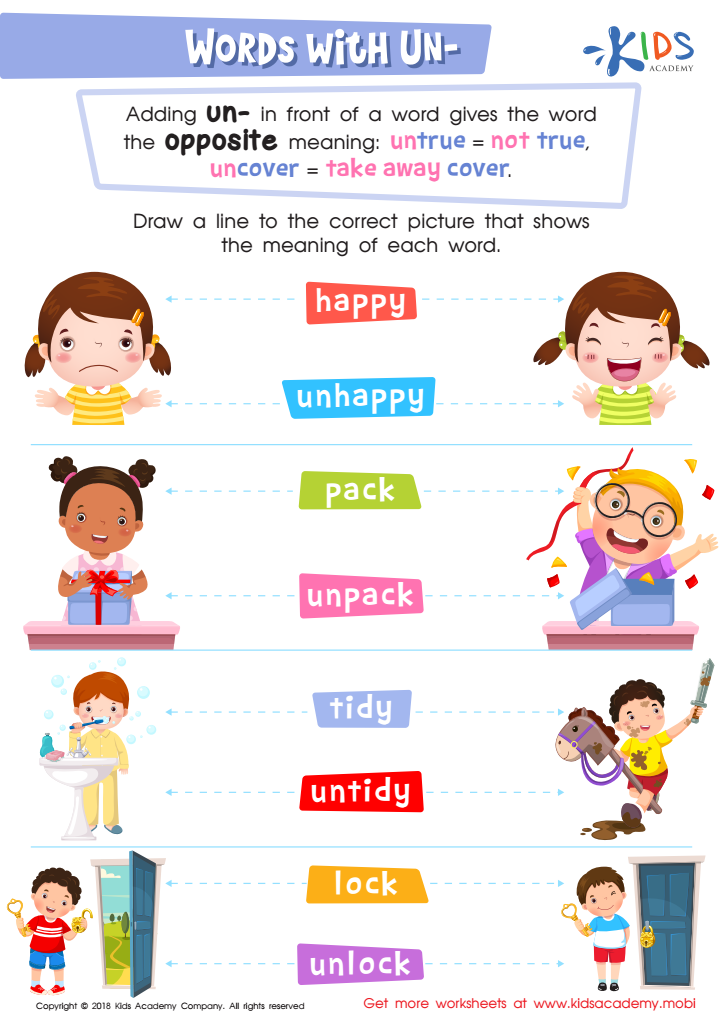

Words with Un– Worksheet
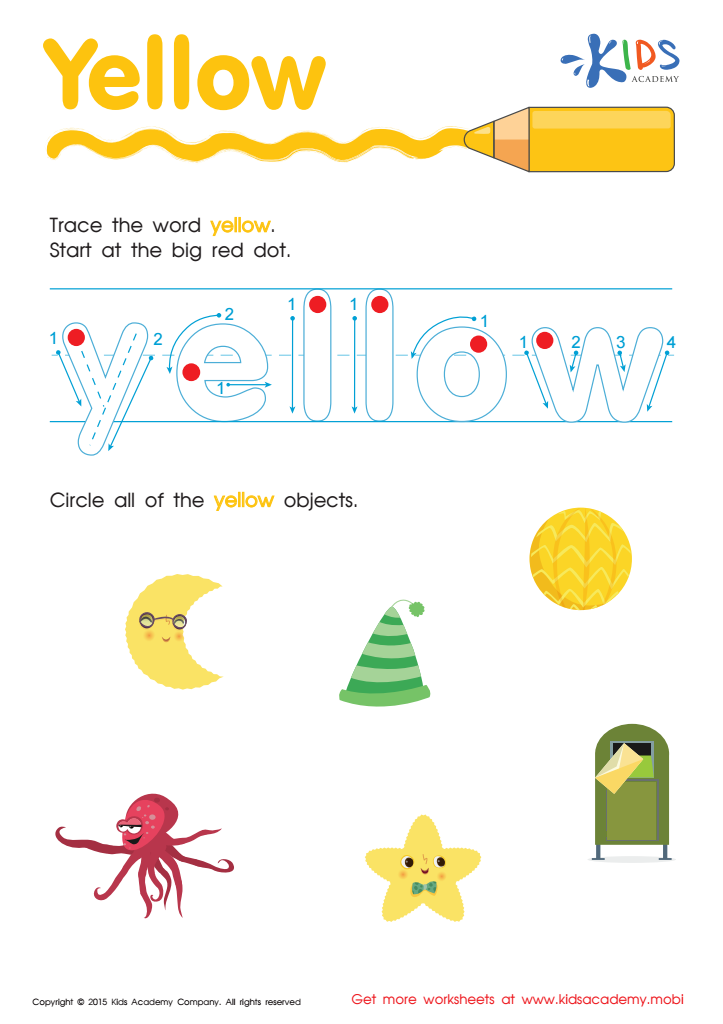

Yellow Tracing Color Words Worksheet


Phonics and Word Recognition: Assessment 3 Worksheet
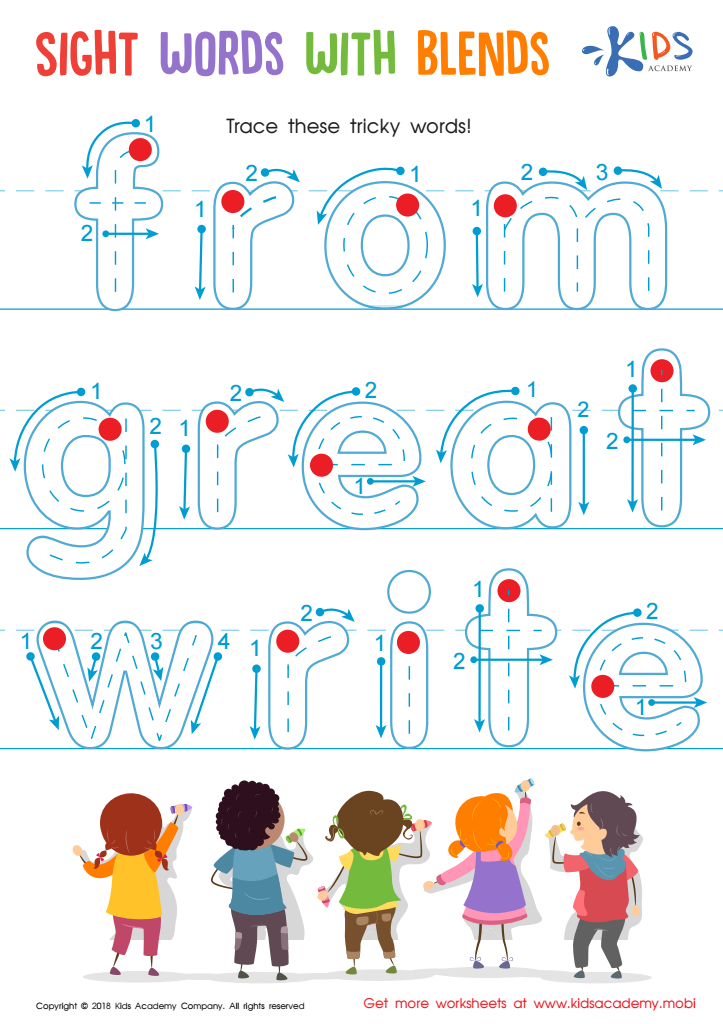

Sight Words with Blends Worksheet
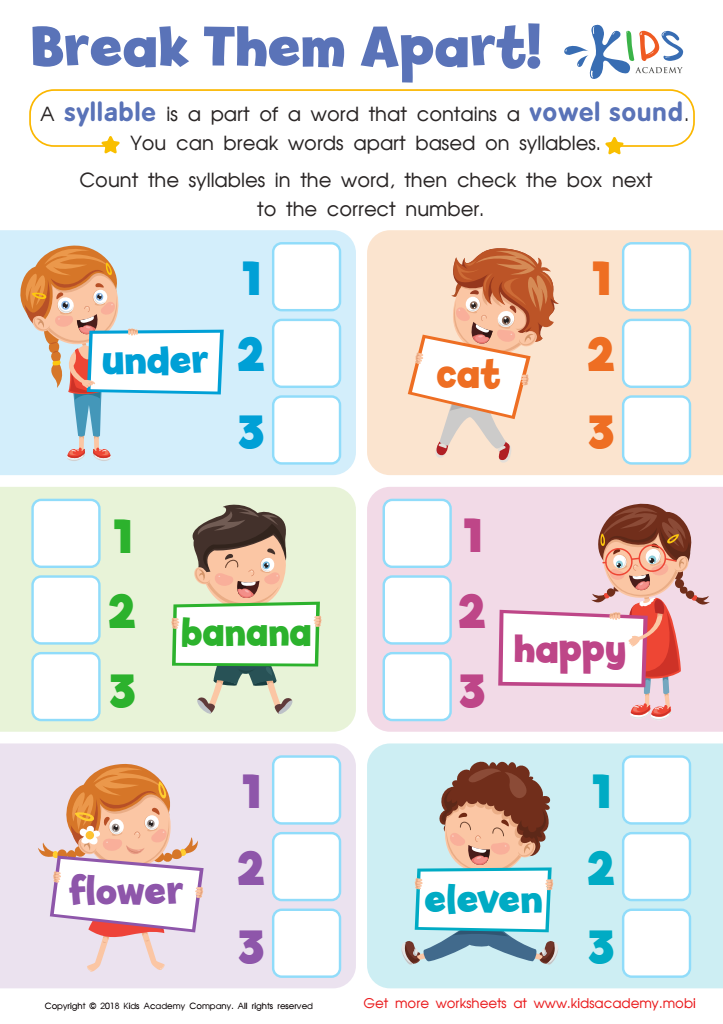

Reading: Break Them Apart Worksheet
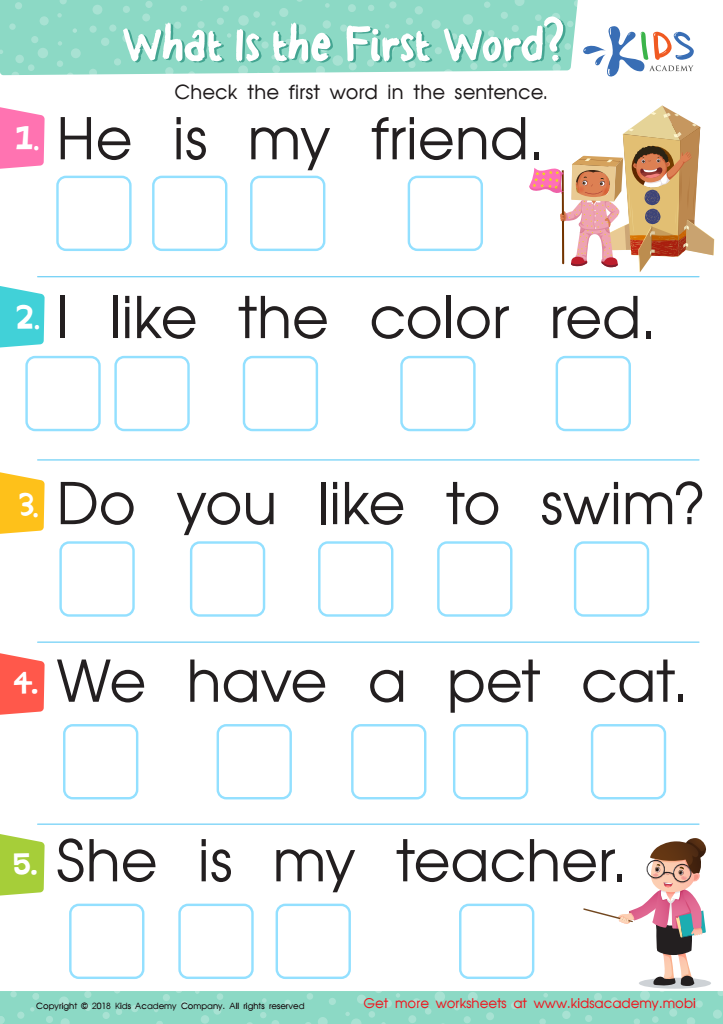

What is the First Word? Worksheet
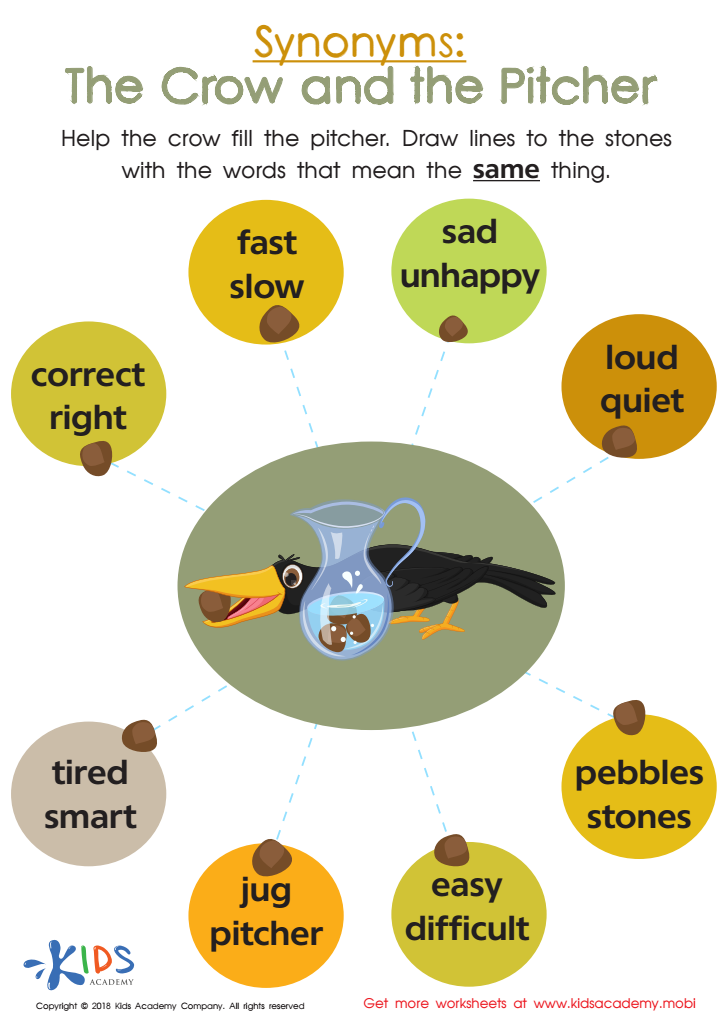

The Crow and the Pitcher Synonyms Worksheet
Vocabulary development is crucial for young learners, as it lays the foundation for effective communication, reading comprehension, and overall academic success. When children have a rich vocabulary, they are better equipped to express their thoughts and feelings, enhancing their writing and speaking skills. It also plays a significant role in their ability to understand and engage with the texts they read, fostering a love for literature and learning.
Parents and teachers should prioritize vocabulary development because it directly impacts a child’s confidence and social interactions. A strong vocabulary allows children to participate in conversations, ask questions, and share ideas, helping them form friendships and develop essential social skills. Moreover, vocabulary knowledge is linked to academic achievement; students with larger vocabularies tend to perform better in school.
Engaging children in conversations, reading diverse books, and introducing new words in meaningful contexts are effective strategies for vocabulary enhancement. In turn, these practices create environments that support children’s cognitive development and foster a lifelong love for learning. By prioritizing vocabulary development, parents and teachers can help children thrive both academically and socially, setting them up for future success in school and beyond.
 Assign to My Students
Assign to My Students







.jpg)













